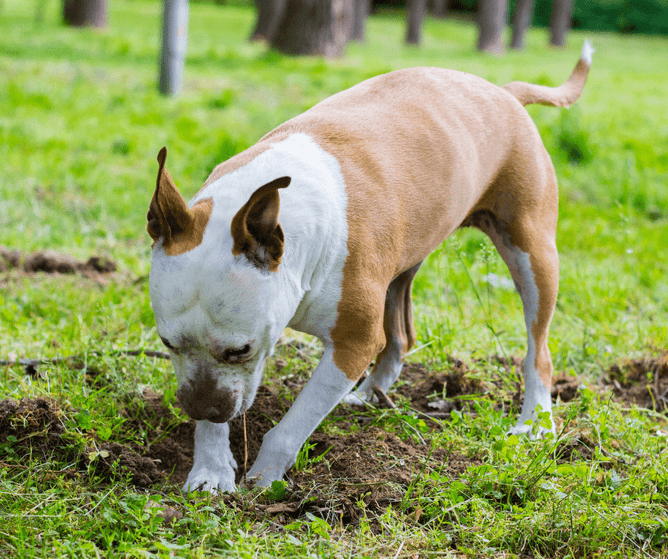Why Do Dogs Dig?
Is your dog is digging up your plants? Or digging holes under the fence? Maybe you risk breaking your ankle stepping in holes in the lawn? We understand your frustration!
Digging is a natural and normal behaviour for dogs. Dogs dig, it’s what they do. Some dogs were even bred to dig for a job. Their strong nails and feet are designed for it.
Digging is also a self-rewarding behaviour – the smells and treasures they can dig up! Plus it’s actually a good work out as they use lots of muscle groups and core strength when digging.
If we look first at the potential ‘whys’ of digging, then learn how we can channel this normal behaviour into appropriate outlets...
Why?
There are many reasons dogs dig:
Breed specific (e.g. Terriers)
Hunting/smelling or hearing something underground
Trying to get cool/comfortable
Boredom
Escaping
Mimicry (they see you digging/shovelling)
Hiding/retrieving valued items
Prevention
Once you have worked out why your dog is digging, then let’s look at trying to prevent and/or redirect the behaviour.
You may be able to prevent digging by fencing off areas of interest, only giving fully consumable bones and treats inside or in a specified area and making sure your dog has appropriate exercise and enrichment. However, the desire to dig may be very high in some dogs. So then we look at redirecting the behaviour to somewhere more appropriate.
Redirection/alternative behaviours
We strongly encourage you to provide an area that your dog is allowed and encouraged to dig in. That way you are still providing that outlet for your dog’s natural behaviour.
A sandpit or children’s clam shell filled with sand are a great options.
Teach your dog to use the area by placing some of their toys and/or some treats in the sand and encourage them to dig to find them.
You can also teach your dog to dig using old towels/fabrics by hiding or rolling up treats in them.
Provide food enrichment toys to give meals and snacks in.
Ensure appropriate exercise and social interaction.
idig is a cool idea if you want to invest in new toys specifically for your digging dog, especially if you don’t have a yard, and then your dog can use it indoors.
Why we don’t recommend punishment
You may have read that if you put something unpleasant for your dog in a hole that is already dug, it may prevent them from digging again. In our experience we find this isn’t usually the case as the desire to dig is too strong and your dog may go elsewhere to dig anyway.
We also don’t recommend scaring or hurting your dog to prevent or reduce digging in unwanted areas as this may cause fear and stress in your dog, and we know that there are better ways.
If you have a ‘digger’ look at ways to prevent that doesn’t cause fear or stress, then channel the behaviour in a more appropriate way.
Happy training!

